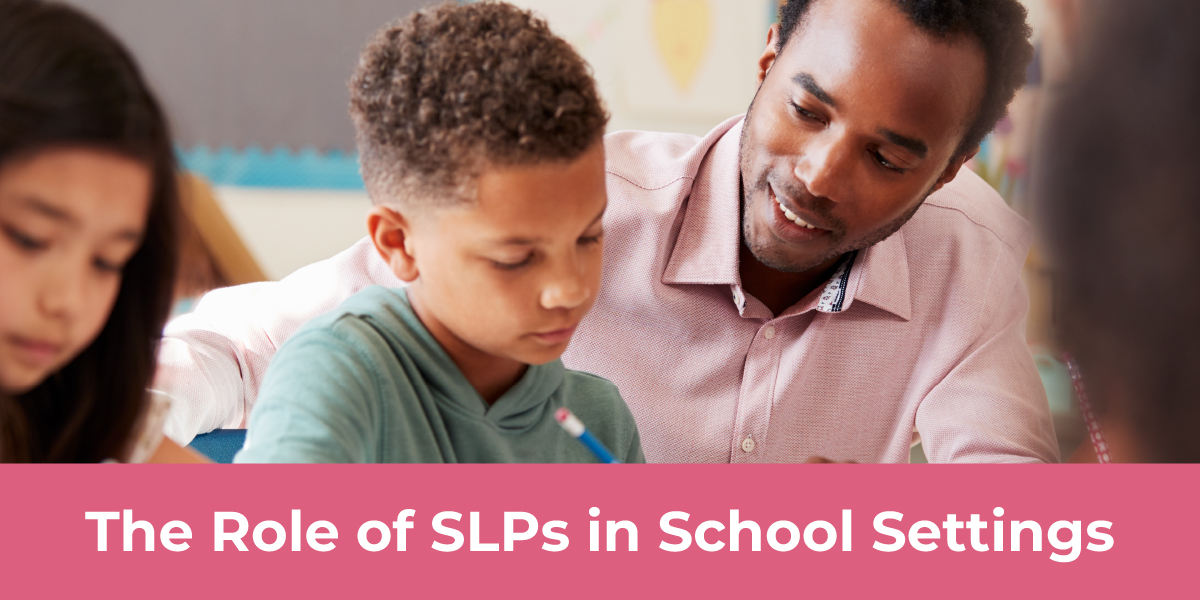What’s the Role of a Speech Language Pathologist in Schools?

As a parent, it can be a difficult experience to learn that your child is going to start working with a speech language pathologist (SLP) in their school. What does this mean about your child? Why is this necessary? What will they learn, and how much “regular” class time will they miss out on? Let’s take a look at the answers to these questions to help assuage any fears or concerns that you might have.
Let’s begin with what an SLP is. An SLP is someone who has a master’s degree or a doctorate in speech language pathology and who has also been licensed by the state and/or Department of Education (depending upon where you live) to help people who have speech and language issues. Put more broadly, an SLP is someone who helps people communicate more clearly and effectively by building stronger speaking, reading, writing, learning, and/or focusing skills.
Plenty of perfectly smart and healthy children have speech and language issues. Sometimes speech and language issues are caused by broader developmental delays, but not always. If your child has a lisp or dyslexia, for example, that’s something that a school SLP can help with, and it is in no way a reflection on your child’s intelligence or ability levels.
In school settings, SLPs are usually asked to work with children when the child has a speech or language issue that effects their ability to successfully participate in classroom activities, hurts their social interactions, effects their literacy, or makes it harder for them to learn.
An SLP at school is someone who provides a bit of extra, focused help, allowing your child to work on whatever issue they’re facing in a safe and comfortable environment.
Many SLPs help ensure that the students they work with get the same classroom experience as their peers by using the same curriculum as the rest of the class for their sessions and simply modifying the work to help the student succeed. This helps children who work with SLPs not miss out on anything.
If you live in the Chicago area, a Chicago speech therapist may already be available to you in your school. Seek them out and ask any questions that you may have. If your school doesn’t have a Chicago speech language pathologist, feel free to give us a call to get your questions answered, to set up a free consultation, or to inquire about hiring an SLP for your school district.
- amber's blog
- Login to post comments





